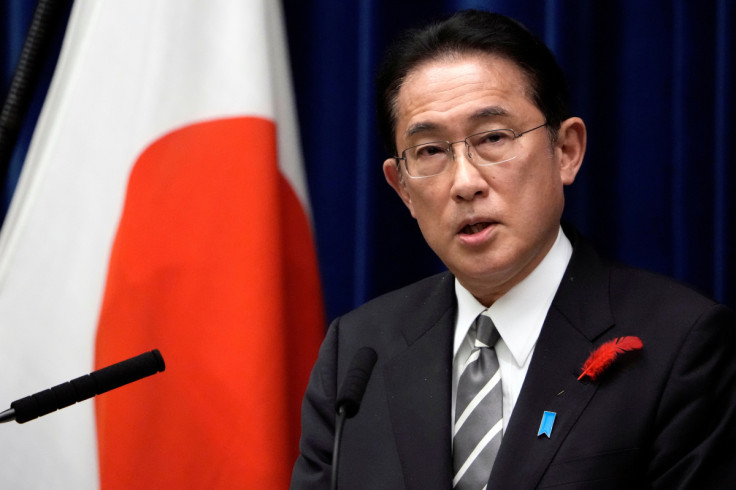Why Japan Is Rearming Again
Japan is rearming again, trying to tame China's ambitions to control the Asian-Pacific region while seeking independence from its long-time ally, the U.S.
For decades, Japan stayed on the sidelines of the arms race in the Asian-Pacific region, leaving its defense to its close ally, the U.S., which kept a strong military presence in the country.
In recent years, Japan has been rearming again. It has been raising its defense spending to upgrade and modernize its military. In addition, it has been buying advanced weapons and military equipment from the U.S., like missile defense systems, stealth fighter jets and amphibious vehicles.
Moreover, it has stepped up its military presence in the region by deploying troops overseas on peacekeeping missions and joint exercises with other countries.
Last month, Prime Minister Fumio Kishida's government made critical revisions to the county's security chart, removing some impediments preventing the country from rearming.
Last week, Kishida visited the White House, where President Joe Biden praised Tokyo for its "historic" increase in defense spending and promised close cooperation on economic and security matters.
Slowly, Japan is turning from a "solid shield" to a "sharp spear," to use the recent description used by Chinese official media.
This major shift in Japan's national security strategy raises fears of a return to the country's old nationalist days that had catastrophic consequences for the Asian Pacific region, including Japan itself.
But there are a few compelling reasons behind it. One of them is North Korea's ongoing challenge of Japan's airspace and China's persistent violation of territorial integrity.
Then there's China's renewed efforts to change the status quo in Taiwan and the failure of the U.S. to draw clear red lines for Beijing. It prompted Japan to pursue its independent defense policy rather than relying on Washington.
"Japan's move to expand its military capabilities and to strengthen its alliance with the United States is not only a response to China's and North Korea's recent and growing threats but also with the understanding that it cannot fully depend on the U.S.," Irina Tsukerman, president of Scarab Rising, Inc., told International Business Times. "Despite being a member of the Quad alliance and looking for a strategic reconfiguration of the U.S. troops in Okinawa, Japan is also pursuing a form of nationalism, seeking increasing defense independent from other states."
Tsukerman thinks Japan is learning a lesson or two from the vulnerabilities of Taiwan. It has been in a precarious position due to inadequate preparation to fend off Beijing's aggression and overdependence on U.S. and Quad promises.
"Japan cannot be sure under what circumstances the other members of the Quad will be willing to come to its defense in the event of a direct attack," she added. "So far, the response to North Korea's growing aggression from the U.S. and others has been relatively muted. Likewise, China's most recent provocative maneuvers close to Japan are yet another wakeup call."
Nonetheless, Tsukerman believes it's too early to call Japan a "sharp spear." Tokyo needs to do much more than just rearming with traditional weapons to achieve this status, like boosting intelligence and counterintelligence capabilities independent of international support. "China is much more likely to engage in protracted hybrid warfare against Japan than a directly attempted invasion expected in the case of Taiwan; for that reason, Japan would be wise to take that into consideration and prepare for a multitude of scenarios," she added.

© Copyright IBTimes 2025. All rights reserved.






















